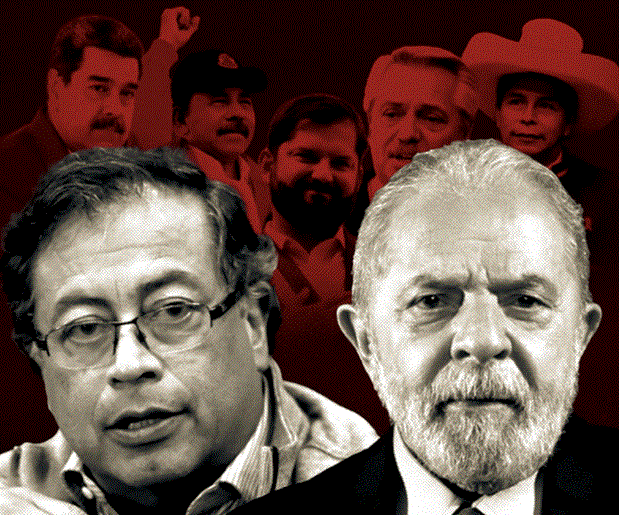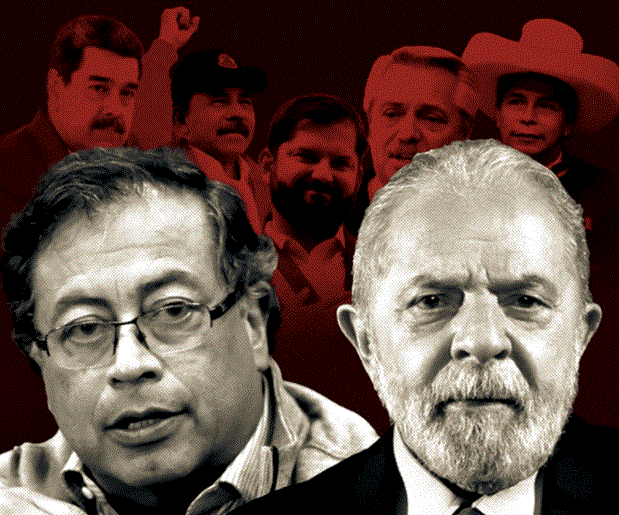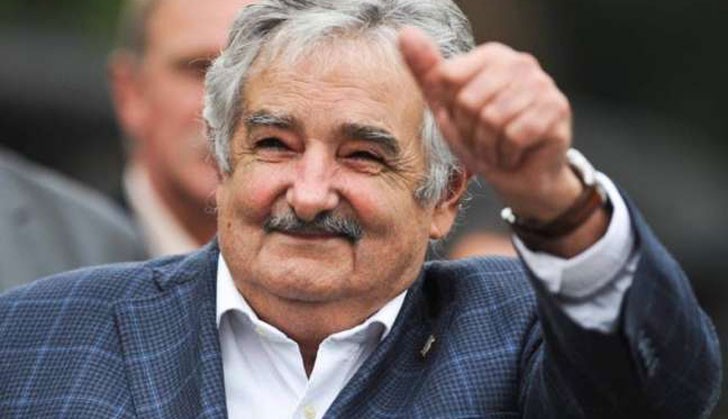
On Sunday, June 19, in Colombia, the triumph of the Historical Pact with Gustavo Petro for the presidency opened in the Andean country the Bolivarian political franchise that is a mark of the Sao Paulo Forum.
The success of the franchise is that the seizure of power occurs through free, fair and competitive elections –a characteristic of democracy–; and once installed, the mechanisms are implemented to not leave it.
The Bolivarian “business” model consists of a “reliable” electoral process; a new economic power and popular power; a new State centered on a supposed social justice; and a social control of the people and the media.
This new electoral process of the franchise will seek to ensure the victory of the ruling party. For this, they are going to change the vote for an electronic one or similar. Likewise, the electoral governing council will be integrated with a majority of rectors related to the governing coalition.
In Colombia, the debate is already taking place. The three electoral processes (Congress, first and second presidential rounds) were campaigns marked by constant alerts of possible fraud.
Caroline Botero, director of the Karisma Foundation, has pointed out that “elections are a key moment in democracy, it is the responsibility of the State to guarantee the integrity, transparency and secrecy of the vote. For years the software has been integrated into the process and has been done through outsourcing that is contracted for each election. The hiring that has been done encompasses everything: logistics, infrastructure, software. And it covers everything for any process, that is why we say that the elections are outsourced”.
Therefore, Petro, the franchisor, will seek to have its own electoral software required by the Bolivarian political franchise.
A fundamental practice of the Foro de Sao Paulo brand is the establishment of a new bourgeoisie. To do this, it must put an end to the capital that subsidizes or supports the traditional opposition parties. The instrumentalization is through the nationalization or expropriation of the countryside and the taking of the direction of the basic industries.
in the night that Petro won the victory, he stressed: «We are going to develop capitalism [léase la nueva burguesía] in Colombia, (…) we have to overcome pre-modernity in Colombia, feudalism and the new slavery”. And he has argued thatwill seek agrarian reform for the transformation of the countryside into a productive key and of social and environmental justice”.
In addition, if the existing union structures do not adapt to the hegemony of the single party, the political franchise replaces them with parallel organizations that allow showing tripartite social dialogue (government, employers and workers).
In the Bolivarian franchise, the “new bourgeoisie”, known as the boliburguesía, has developed by capturing the State for its personal benefit, through corruption and illicit activities.
A key axis of the franchise is the development of popular power. Necessary to face the anti-government protests that will arise from the implantation of the new State centered on a supposed social justice. In addition, it allows him to change the use of public forces, as the control mechanism of the demonstrations, for that of a confrontation of people against people. This way he avoids being accused of crimes against humanity. The groups that defend the new established order arise.
In the case of Colombia, Petro seeks to achieve “social justice” through a tax reform that directly hits the largest assets and Colombians who today have more income. “The idea is that the 4,000 or 5,000 richest Colombians pay for it, those who have had the most benefits in our nation,” he announced.
To ensure successive electoral victories, social control of the population and the media is essential. To do this, the social missions made up of health, education, and sports personnel serve the popular sectors, historically marginalized or excluded from the provision of health, educational, and sports services. In addition to doing intelligence work, knowing the social climate and the activities of the opposition leaders in those areas.
From the beginning, the new narrative of the Historical Pact’s ideology ensures that the objective data of the Petro administration are less important to its followers than the opinions and emotions it arouses. The process of the leader-people relationship begins, so that the independent media are neutralized ―by buying them― and if they cannot, they reach the point of annihilating them to remove them from circulation.
Peace is the basis for whitewashing the activities of organized crime. In the case of Colombia, there are international networks for cocaine. Yes Brunette in Mexico it is the political arm of organized crime, in Colombia it is the Historical Pact―“they would have offered criminals in prisons that would not extradite them [a Estados Unidos] (…) for the proposal of “social forgiveness”―.
Colombian society must act with unity of purpose and command from now on so that the franchise acquired by Petro is not successful. Otherwise, the political franchise of Bolivarianism will once again expand throughout the region. For now, it opened in Colombia.








